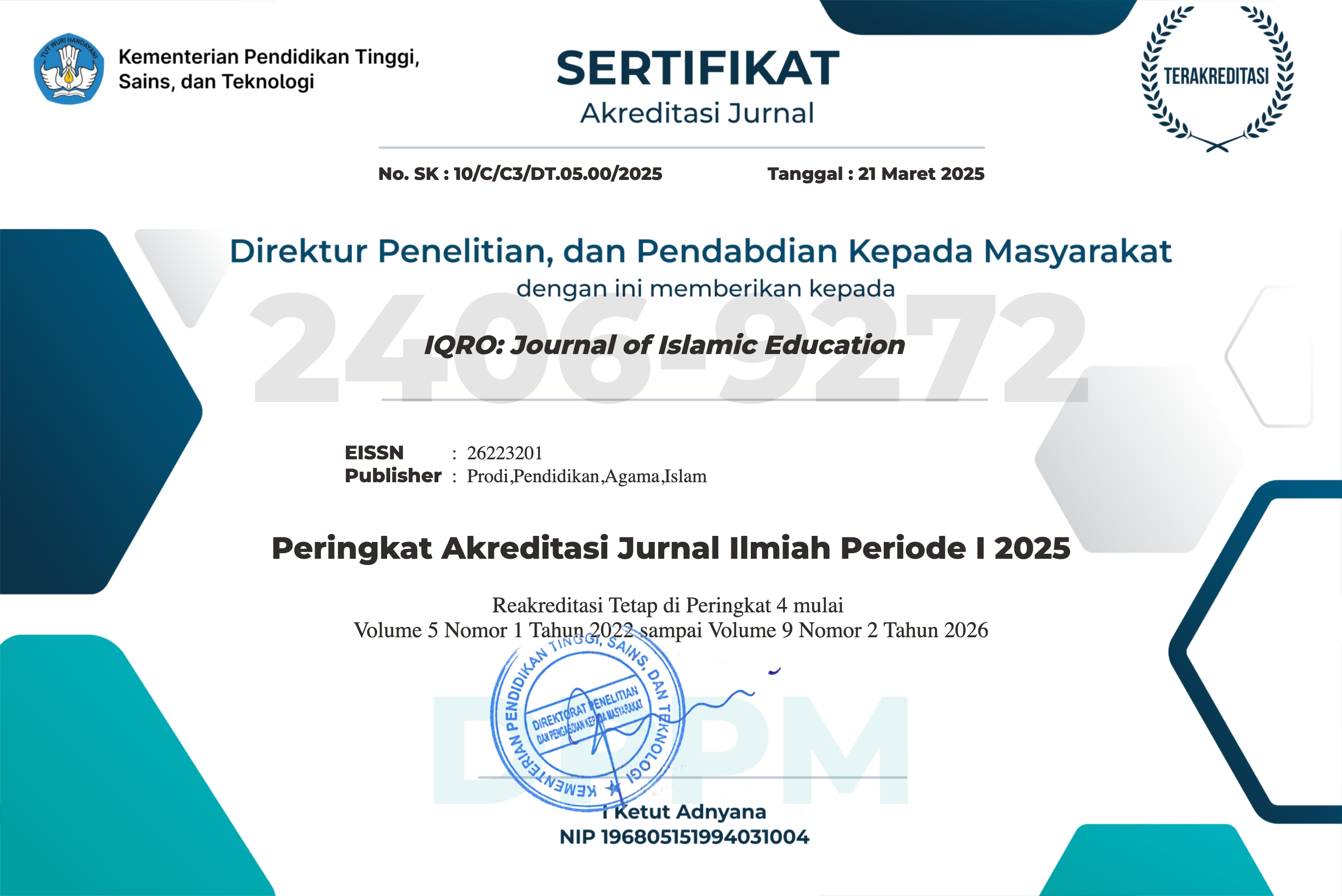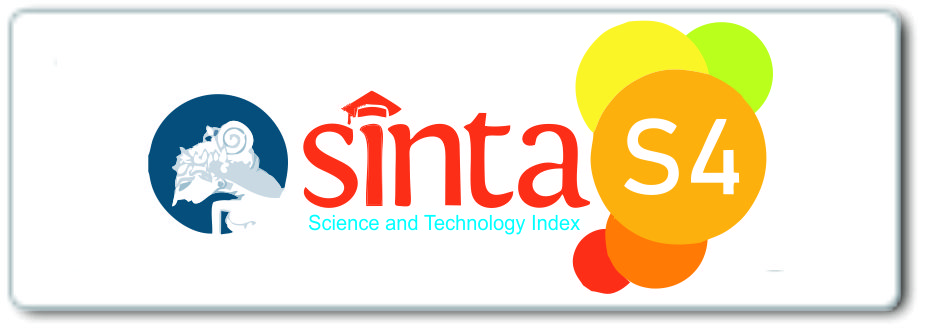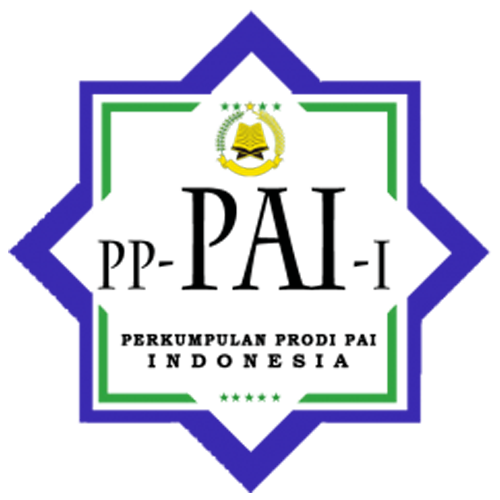Pendidikan Islam Multikultural Pascakonflik di Luwu Utara
DOI:
https://doi.org/10.24256/iqro.v3i2.1720Keywords:
Multicultural, Post-Conflict, Islamic EducationAbstract
The results showed that the post-conflict Multicultural Islamic Education that took place in North Luwu seemed to emphasize religious moral values, such as compassion, love, help, respect for differences of opinion, respect for diversity of beliefs, and other attitudes that can create relationships. harmony between faith and culture. Multicultural education instilled in students is awareness of living in cultural diversity in society, respect for human rights, and efforts to minimize prejudice, especially interreligious prejudice that has been built up in North Luwu. All of these achievements are aimed at enlivening a harmonious society in terms of ethnic, religious and cultural diversity. In its implementation, the multicultural paradigm of religious education in North Luwu allows students to appreciate plurality and heterogeneity as well as the consequences of cultural, ethnic, sectarian and religious diversity which are the reality of the North Luwu community. The post-conflict Islamic education model in North Luwu consists of three models, namely through educational institutions both public schools and Islamic institutions, through mass and political organizations, and through Islamic organizations.
References
Kementerian Agama Republik Indonesia, Al-Qur’an dan Terjemahnya.
A. Muin MG, Sirik na Pacce, Cet. IV (Ujung Pandang: Yayasan Makassar Press, 1994).
Abrasyi, Aiyah al-. Al-Tarbiyah al-Islamiyah wa Falsifatuh, (Cet. III, Mesir: Isa al-Baby alHalaby, t.th.)
Ali, Nizar (Eds), Antologi Pendidikan Islam, (Cet. I; Yogyakarta: Idea Press, 2010)
Arikunto, Suharsimi. Manajemen Penelitian, (Cet. VII; Jakarta: Rineke Cipta, 2005)
Badruzzaman, et al., eds., Implementasi Pendidikan Agama di Daerah Pasca Konflik, (Cet. I; Makassar: Cahaya Mujur Lestari, 2009)
Bungin, Burhan. Penelitian Kualitatif: Komunikasi, Ekonomi, Kebijakan Publik, dan Ilmu Sosial Lainnya, Ed. I, (Cet. ke-4; Jakarta: Kencana Prenada Media Group, 2010) Departemen Pendidikan dan Kebudayaan, Kamus Besar Bahasa Indonesia.
Faisal, Sanapiah. Format-Format Penelitian Sosial, Dasar-Dasar dan Aplikasi, (Cet. VII; Jakarta: RajaGrafindo Persada, 2000)
Hassan, Muhammad Hassan dan Naiyah Jamaluddin, Madaris al-Tarbiyah fi al-Daurah alIslamiyah, (Kairo: Dar al-Fikr al-„Arabi, 1984)
Kartasapoetra, G. dan L.J.B. Kreiners, Sosiologi Umum, Cet. I; (Jakarta: Bina Aksara, 1987) Marimba, Ahmad D. Pengantar Filsafat Pendidikan. (Cet. VIII; Bandung; PT. al-Maarif, 1999)
Nasution, Harun. Islam Ditinjau dari Berbagai Aspeknya, jilid I, (Cet. V; Jakarta: UI-Press, 1985)
Razmal, Abdul Muin. “Konflik Sosial Antara Masyarakat Rongkong dan Baebunta di Kecamatan Baebunta Kabupaten Luwu Utara,†(Thesis Program Pascasarjana, Program Pasca Sarjana Universitas Negeri Makassar, 2001).
Sugiono, Metode Penelitian Pendidikan, Pendekatan Kuantitatif, Kualitatif, (Cet. V; Jakarta: Alfabeta, 2008)
Sumartana, Th. et al.,ed., Pluralisme, Konflik dan Pendidikan Agama di Indonesia, (Cet. I, Yogyakarta: Pustaka Pelajar, 2001).
Tenrigau, A. Aziz. dkk, Baebunta dalam Kerajaan Luwu, (Palopo, A. Djemma University Press, 2007), h.17 Pollan, Michael. The Omnivore’s Dilemma: A Natural History of Four Meals. New York: Penguin, 2006.
Ward, Geoffrey C., and Ken Burns. The War: An Intimate History, 1941–1945. New York: Knopf, 2007.






 This is an open access article under the
This is an open access article under the 